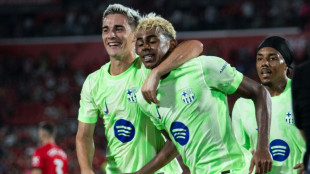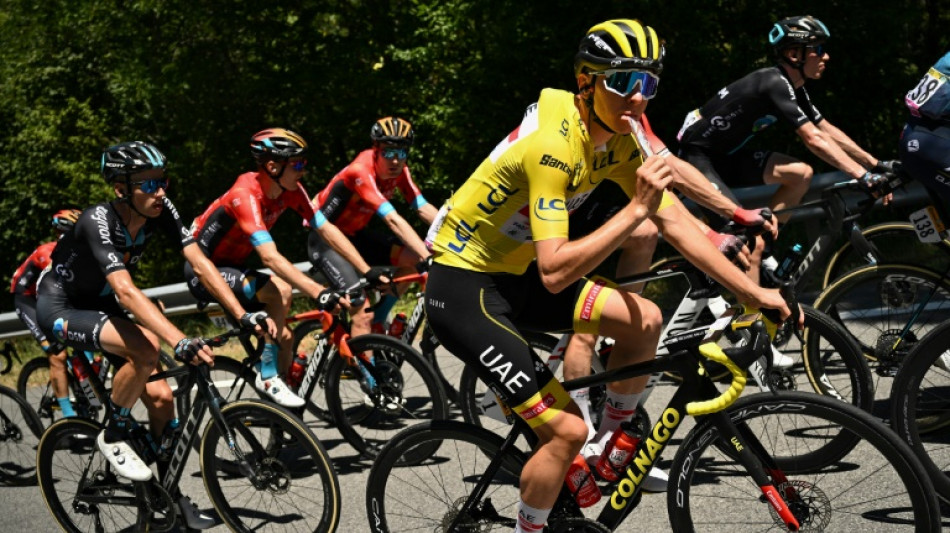
-
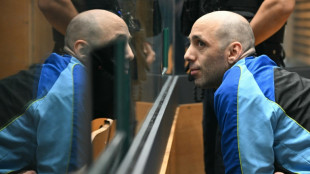 Frenchman denies killing wife in case that captivated France
Frenchman denies killing wife in case that captivated France
-
Bavuma out of Test series in Pakistan as De Kock back for ODIs
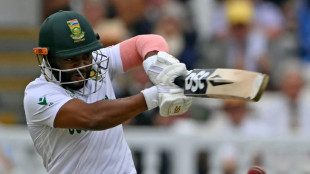
-
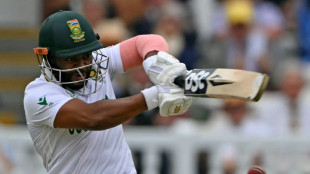 Bavuma out of Test series as De Kock back for white-ball games
Bavuma out of Test series as De Kock back for white-ball games
-
French town halls defy government warning to fly Palestinian flags

-
 French zoo returns poorly panda and partner to China
French zoo returns poorly panda and partner to China
-
IEA feels the heat as Washington pushes pro-oil agenda
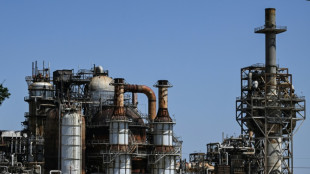
-
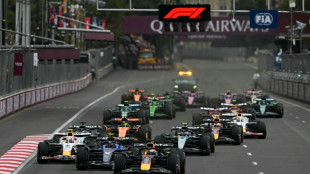 Three things we learned from the Azerbaijan Grand Prix
Three things we learned from the Azerbaijan Grand Prix
-
Spanish bank BBVA raises offer for rival Sabadell

-
 Tens of thousands join pro-Palestinian demos, strikes in Italy
Tens of thousands join pro-Palestinian demos, strikes in Italy
-
Man City's Silva fumes over lack of respect in schedule row
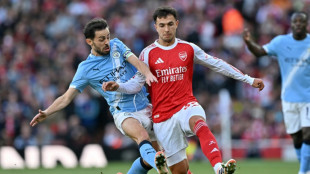
-
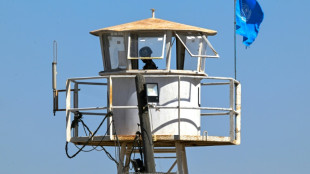 Israeli army operations stir fears in Syria's Quneitra
Israeli army operations stir fears in Syria's Quneitra
-
Chelsea's Palmer likely to avoid groin surgery: Maresca

-
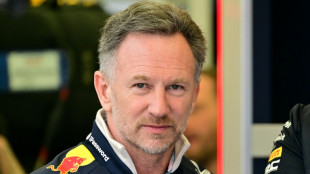 Horner formally leaves Red Bull after agreeing exit from F1 team
Horner formally leaves Red Bull after agreeing exit from F1 team
-
Newcastle sign Wales full-back Williams

-
 Nigerian women protest for reserved seats in parliament
Nigerian women protest for reserved seats in parliament
-
Stocks mixed ahead of week's key US inflation data

-
 Experts question Albania's AI-generated minister
Experts question Albania's AI-generated minister
-
Philippine protest arrests leave parents seeking answers

-
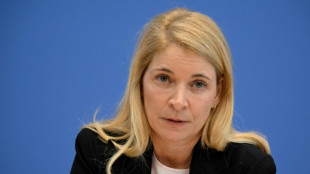 New boss of Germany's crisis-hit railways vows 'new start'
New boss of Germany's crisis-hit railways vows 'new start'
-
Just not cricket: how India-Pakistan tensions spill onto the pitch
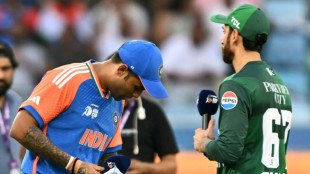
-
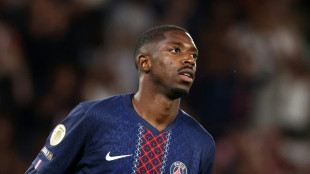 PSG star Dembele expected to beat Yamal to Ballon d'Or
PSG star Dembele expected to beat Yamal to Ballon d'Or
-
Burberry returns to London's top shares index

-
 French town halls fly Palestinian flag despite government warning
French town halls fly Palestinian flag despite government warning
-
China prepares to evacuate 400,000 as super typhoon makes landfall in Philippines
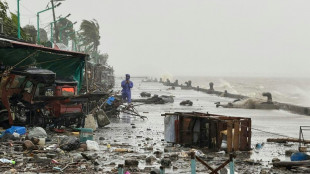
-
 Japan PM candidate vows 'Nordic' gender balance
Japan PM candidate vows 'Nordic' gender balance
-
Climate goals and fossil fuel plans don't add up, experts say
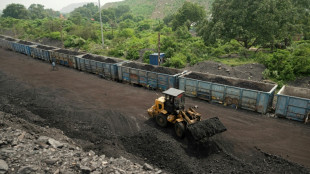
-
 Amazon faces US trial over alleged Prime subscription tricks
Amazon faces US trial over alleged Prime subscription tricks
-
Google faces court battle over breakup of ad tech business

-
 France, others to recognize Palestinian state as UN week gets underway
France, others to recognize Palestinian state as UN week gets underway
-
Burkina's LGBTQ community fears 'witch hunt' after anti-gay law

-
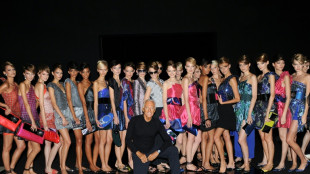 Milan Fashion Week to mourn Armani, welcome new stars
Milan Fashion Week to mourn Armani, welcome new stars
-
LAFC's Bouanga makes MLS history with hat-trick in Salt Lake win

-
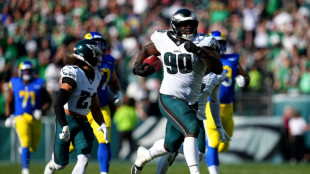 Eagles top Rams in NFL thriller as Chiefs grab first win
Eagles top Rams in NFL thriller as Chiefs grab first win
-
Thousands evacuated in Philippines as super typhoon nears land
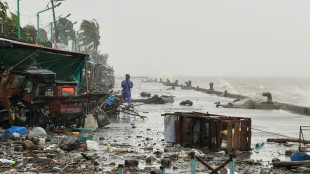
-
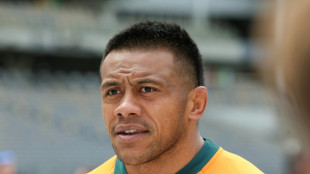 Alaalatoa, Wallabies fired up to end All Blacks unbeaten Eden Park run
Alaalatoa, Wallabies fired up to end All Blacks unbeaten Eden Park run
-
Arrest tally grows after Philippine anti-corruption protest clashes
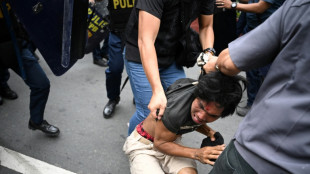
-
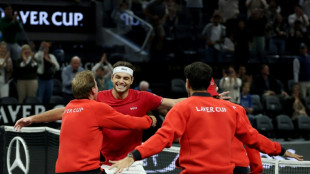 Fritz downs Zverev to seal Team World Laver Cup win over Europe
Fritz downs Zverev to seal Team World Laver Cup win over Europe
-
Asian markets mixed as traders take stock after Fed-fuelled rally

-
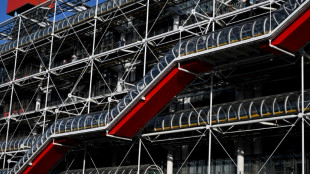 France's renowned Pompidou Centre shuts for 5-year refit
France's renowned Pompidou Centre shuts for 5-year refit
-
North Korea's Kim open to US talks, has 'fond memories' of Trump

-
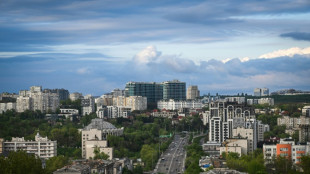 Moldova's powerful diaspora courted in battle between Moscow and West
Moldova's powerful diaspora courted in battle between Moscow and West
-
Moldovan voters face crossroads between Russia and EU

-
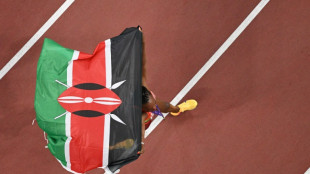 Kenyan athletes shine in Tokyo, but anti-doping efforts remain in the dark
Kenyan athletes shine in Tokyo, but anti-doping efforts remain in the dark
-
In Sudan, 'never again' has proved untrue: UNHCR chief
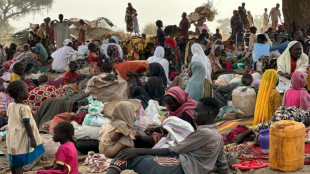
-
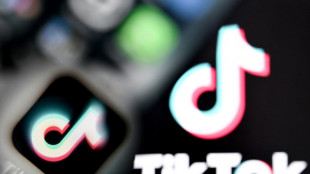 Trump says Murdochs interested in investing in TikTok's US arm
Trump says Murdochs interested in investing in TikTok's US arm
-
'No amnesty!' Brazilians protest against bid to pardon Bolsonaro
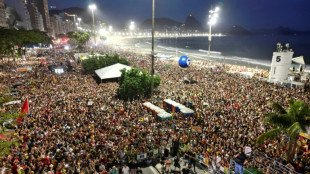
-
 Tens of thousands rally against Hungary PM Orban's media spending
Tens of thousands rally against Hungary PM Orban's media spending
-
Resurgent Blue Jays clinch MLB playoff berth

-
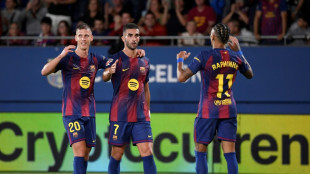 Barca ease to Getafe win, Atletico held after missed penalty
Barca ease to Getafe win, Atletico held after missed penalty
-
Venezuela's Maduro says he wants dialogue with US
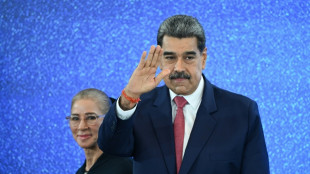

'Starvation' days over as cyclists prepare to gorge on Tour de France
Not so long ago, cyclists heading into the Tour de France were skinny string beans weighing and measuring every grain of rice that entered their body but that image has not just gone, it's taken a seismic shift in the other direction.
This year's riders will be gorging themselves like never before, taking on board the equivalent of a large plate of pasta per hour and even training their stomachs to cope with this influx of food.
"Intake has doubled," Julien Louis, nutritionist for the Decathlon-AG2R team, told AFP.
In fact, it's a 180-degree turnaround from the 2010s and the "low carb" fad popularised by four-time Tour de France winner Chris Froome's Sky team.
This method consisted of depriving the body of sugars during training in order to lose weight and encourage the body to use fat for energy.
"Two eggs for breakfast and we were off for five-six hours of training, with water in the bottles. We were exhausted the whole time," recalls British veteran Simon Yates, winner of the last Giro.
Climber Pavel Sivakov paints an even more dramatic picture.
"Mentally, it was very hard," he says. "We were starving, with no energy, tapping into our fat."
Those days are gone.
"When there's nothing left in the tank the runner switches to using fat," explains Louis who used to work for English Premier League side Liverpool.
"It works but it's much less effective than carbohydrates."
- 'Never eaten so much' -
One look at the map for the Tour de France which runs 3,338 kilometres over three weeks from Lille, all the way down south and back up to Paris for the finish, is a giveaway when it comes to a rider's nutritional needs.
He will burn through roughly 7,000 calories on one of the lung-busting, muscle-crunching mountain stages.
"You have to eat four times as much as a normal person," says Cofidis rider Simon Carr. "We've never eaten so much on a bike."
Most riders now take in up to 120 grammes of carbohydrates per hour while racing, in some cases even more, which is enormous.
"It's the equivalent of six bananas or around 200 grammes of dried pasta per hour," says Louis.
Until recently, eating such large quantities, mainly in the form of gels and energy drinks, was unimaginable, as it would lead to too much intestinal distress.
"Up until five years ago, 120g of carbohydrates per hour was impossible," Tadej Pogacar explained in a podcast in September, adding such an intake would have had him in dire need of a trip to the toilet.
- Intestinal training -
Since then, great progress has been made with energy products, which now contain a combination of two types of carbohydrate.
"For a long time, we thought there was only one kind of carbohydrate transporter in the intestine," explains Louis.
"Then we discovered that there was a second type that could transport fructose. As a result, by using these two pathways at the same time, we can push through twice as much sugar."
According to all the parties interviewed by AFP, these advances in nutrition, along with developments in equipment and training methods, help to explain the increasingly high levels of performance in cycling, a sport which has often been associated with doping.
Although products are now better tolerated by the body, making this revolution possible, riders still have to train their stomachs to cope with such quantities.
"Otherwise you can't digest when you're asked to eat six gels an hour. Your body just can't cope," says Pauline Ferrand-Prevot, this year's winner of the women's Paris-Roubaix and gold medallist in the cross-country mountain bike at the Paris Olympics.
She found this out the hard way when she gave up, ill, during the World Championships in September, unused to the longer distances after her switch from mountain bikes.
During winter training, the riders now do "at least one session a week of intestinal training, or 'gut training'", says Louis.
"At the very beginning, there may be a little discomfort," he adds. "But without it, you're at a huge disadvantage. It's as if you're not running on the same fuel."
H.Gerber--VB

